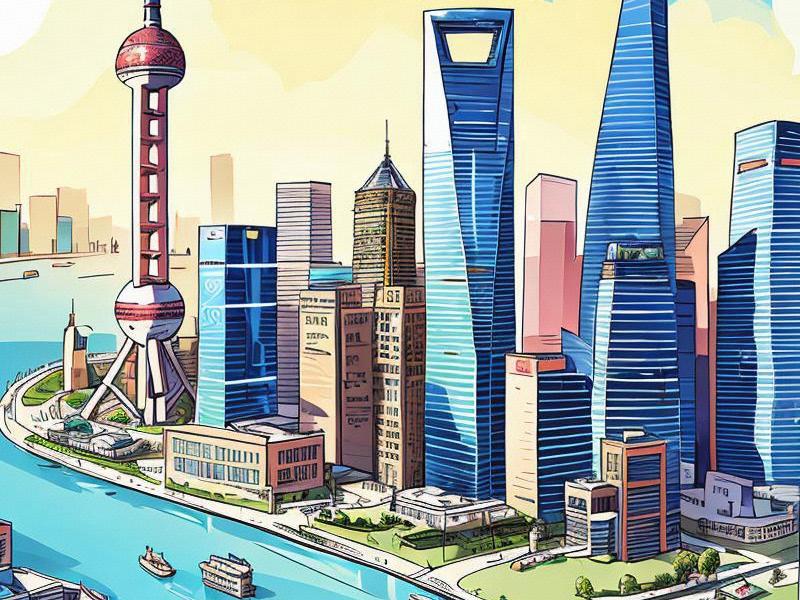This article delves into the remarkable transformation of Shanghai, exploring its evolution from a historic port city to a global metropolis that is a beacon of cultural and economic innovation. It examines the city's urban renewal projects, the flourishing arts scene, and its strategic role in China's economic landscape.

Nestled along the banks of the Huangpu River, Shanghai stands as a testament to China's rapid modernization. Once a humble fishing village, the city has risen to prominence as one of the world's most dynamic urban centers. Its skyline, a blend of colonial-era architecture and cutting-edge skyscrapers, tells the story of a city that has embraced change while preserving its rich heritage.
The transformation of Shanghai is not merely a visual spectacle; it is a profound cultural and economic metamorphosis. Over the past few decades, the city has undergone a renaissance, transforming itself into a hub for commerce, culture, and innovation. This journey is marked by ambitious urban renewal projects, a thriving arts scene, and its strategic position in China's economic framework.
One of the most striking aspects of Shanghai's transformation is its urban renewal. The city has invested heavily in revitalizing its old neighborhoods, blending the old with the new in a way that respects its historical significance while catering to modern needs. The Bund, once a symbol of Shanghai's colonial past, has been transformed into a vibrant promenade lined with world-class hotels, restaurants, and cultural institutions. The Pudong area, on the other side of the Huangpu River, has emerged as a symbol of Shanghai's modernity, home to the iconic Oriental Pearl Tower, the Jin Mao Tower, and the Shanghai Tower, the tallest building in China.
The urban renewal projects in Shanghai are not just about architecture; they are about creating spaces that foster creativity and innovation. The city has developed numerous cultural and creative industries parks, such as the Zhangjiang Hi-Tech Park and the West Bund Creative Industrial Park. These spaces have attracted a diverse range of creative professionals, from artists and designers to tech entrepreneurs, contributing to the city's vibrant cultural scene.
The arts in Shanghai have flourished in recent years, reflecting the city's growing confidence and international profile. The Shanghai International Film Festival, one of the oldest and most prestigious film festivals in Asia, attracts filmmakers and audiences from around the world. The city's museums and galleries showcase a rich array of contemporary and traditional art, from Chinese ink paintings to avant-garde installations.
上海龙凤419社区
The Shanghai Symphony Orchestra and the Shanghai Ballet are renowned for their performances, both at home and abroad. The city's theaters host a variety of plays and musicals, ranging from classical to experimental. The arts scene in Shanghai is not just about entertainment; it is a platform for cultural exchange and dialogue, reflecting the city's cosmopolitan character.
Shanghai's economic transformation is equally remarkable. As one of China's four municipalities directly under the central government, Shanghai plays a pivotal role in the country's economic development. The city is a major financial hub, home to the Shanghai Stock Exchange and the Pudong International Airport, which serves as a gateway to the world.
The Shanghai Free-Trade Zone, established in 2013, has been a catalyst for economic innovation. It offers a range of preferential policies to attract foreign investment and promote trade. The zone has become a testing ground for China's economic reforms, showcasing the country's commitment to opening up its economy and integrating with the global market.
Shanghai's port is one of the busiest in the world, handling millions of containers annually. The city's strategic location along the Yangtze River Delta makes it a key player in China's domestic and international trade networks. The development of the Yangshan Deep Water Port, located on an artificial island, has further enhanced Shanghai's position as a global shipping hub.
上海龙凤419手机
The city's economic transformation is not without challenges. As Shanghai continues to grow, it faces issues such as urban sprawl, environmental sustainability, and social inequality. The city government has implemented various measures to address these challenges, including promoting green development, improving public transportation, and enhancing social welfare programs.
Shanghai's transformation is also reflected in its education and research institutions. The city is home to world-class universities such as Fudan University and Tongji University, which are hubs of academic excellence and innovation. ShanghaiTech University, established in 2014, focuses on interdisciplinary research and entrepreneurship, contributing to the city's knowledge economy.
The city's commitment to innovation is evident in its efforts to develop new technologies and industries. Shanghai has become a leader in fields such as artificial intelligence, biotechnology, and green energy. The city's research institutions and startups are driving advancements that have the potential to reshape industries and improve lives.
Shanghai's transformation is not just about economic growth; it is about creating a better quality of life for its residents. The city has invested in public services, infrastructure, and cultural amenities to enhance the well-being of its population. The development of parks, museums, and cultural centers provides residents with opportunities to engage in leisure activities and cultural experiences.
上海夜生活论坛
The city's transportation network has been significantly improved, with the expansion of the metro system and the construction of new highways and bridges. Public transportation is efficient, affordable, and environmentally friendly, making it easier for residents to commute and travel within the city.
Shanghai's transformation is a story of resilience, innovation, and ambition. It is a city that has embraced change while preserving its unique identity. As Shanghai continues to evolve, it remains a symbol of China's rise as a global power and a testament to the potential of urbanization to drive economic and cultural progress.
In conclusion, Shanghai's renaissance is a multifaceted phenomenon that encompasses urban renewal, cultural flourishing, and economic transformation. The city's journey from a historic port to a global metropolis is a story of vision, determination, and success. As Shanghai looks to the future, it continues to be a beacon of hope and opportunity, inspiring cities around the world to embrace their own transformations.